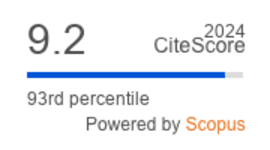A Variant of Concern (VOC) Omicron: Characteristics, Transmissibility, and Impact on Vaccine Effectiveness
DOI:
https://doi.org/10.36877/pmmb.a0000280Abstract
Almost three years have passed since the start of the COVID-19 pandemic. The severe acute respiratory syndrome coronavirus 2 (SARS-CoV-2) has constantly been mutating, producing variants with evolutionary advantages. A total of 5 variants of concern (VOCs) have emerged since the start of the COVID-19 pandemic, including Alpha (B.1.1.7), Beta (B.1.351), Delta (B.1.617.2), Gamma (P.1), and Omicron (B.1.1.529). However, as of October 2022, only the Omicron variant remains a VOC. As compared to the previous variants, although Omicron has the most extensive mutations but it appears to have lower severity and risk of hospitalization. Symptoms of Omicron infection seem to also differ from previous variants. Omicron is highly transmissible and infectious and seems to have immune evasion capability. This is worrying as even after COVID-19 vaccination has been implemented globally, there are findings that COVID-19 vaccines may not be able to provide complete protection against Omicron. This review aims to provide insight into the characteristics of Omicron, including its symptoms, severity, risk of hospitalization, transmissibility and infectivity, immune evasion, and impact on the effectiveness of COVID-19 vaccines.
Downloads
Published
How to Cite
Issue
Section
License
Copyright (c) 2022 Angel Yun-Kuan Thye, Jodi Woan-Fei Law

This work is licensed under a Creative Commons Attribution-NonCommercial 4.0 International License.
Author(s) shall retain the copyright of their work and grant the Journal/Publisher right for the first publication with the work simultaneously licensed under:
Creative Commons Attribution-NonCommercial 4.0 International (CC BY-NC 4.0). This license allows for the copying, distribution and transmission of the work, provided the correct attribution of the original creator is stated. Adaptation and remixing are also permitted.

This broad license intends to facilitate free access to, as well as the unrestricted reuse of, original works of all types for non-commercial purposes.
The author(s) permits HH Publisher to publish this article that has not been submitted elsewhere.



.png)

.jpg)
